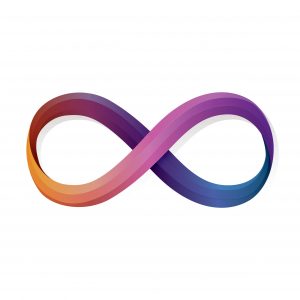by Jason Harris

April is Autism Awareness Month, and I am an Autistic person. But I am not “autism.” No Autistic person is. There are Autistic people with different abilities and limitations, just like every other person with and without disabilities. As the saying goes, “If you’ve met one person with autism, you’ve met one person with autism.”
I didn’t know I was Autistic until I was around 15 years old. Up until then I was diagnosed with a non-specific learning disability. I was later diagnosed as a person with autism. It wasn’t until my undergrad college years that I learned about disability studies and disability as a way of being in a class titled “Disability Culture and Equity.” This experience was not only informative, but ultimately became instrumental in how I perceived and spoke of my experiences.
My introduction to disability studies inspired me to reflect on the practical application of what I learned and how it applied to me personally as an Autistic person, and I decided to further my education in graduate school, majoring in Cultural Foundations of Education and Disability Studies. This course of study broadened my perspective as I learned not only more about the history of disabilities and people with disabilities but a lot about societal and cultural norms: How we talk and think about things and how we communicate them in either positive ways to help ideas progress, or negative ways that is not as helpful and stirs fears, or a mixture of both that can impact society. I transitioned from procuring an intellectual understanding to experiential application through immersion in disability and Autistic culture and community. On campus, I joined On The Spectrum Group (OTS), a support and advocacy group of graduate and undergraduate students, including alumni and other community members, who identify as Autistic. This grass-roots organization offered a nonjudgmental, supportive space for Autistic students the freedom to express themselves to talk about challenges or just get together to hang out. It was monumental in that no one was telling you how you should be; it was a group-directed, respectful environment where people could be who they are, share experiences and learn from each other. I also interned in D.C. with the American Association for People with Disabilities (AAPD) and lived with other interns in a supportive environment where we were there for each other and understood each other’s differences as a community of persons with disabilities.
After earning my Master’s Degree, I began working at the Office of Interdisciplinary Programs and Outreach (OIPO) at Burton Blatt Institute, Syracuse University. I have found that working alongside other neurodivergent and disabled individuals has helped me gain acceptance and understanding by learning from each other and actually putting into practice what I had studied. It is empowering to be around others who are encouraging, accepting and appreciative of diverse ideas and strengths, advocating and shaping new ideas and discussion around supports and self-determination to have the voices of people with disabilities heard and be included in the discussion around disability rights, and cultural and societal acceptance. Working with mentors and peers in this supportive and positive environment has helped to build my confidence to work with other disabled and non-disabled individuals and organizations in environments where I could use my skills and ideas to further disability rights.
All of these encounters and work environments introduced me to Autistic Culture and Disability Culture, and those who are deeply dedicated to this community has helped evolve my views about myself and others. More and more, rather than viewing myself through the old lens of having a “deficit” when asking for support, I’m learning to accept myself. Instead, I understand what makes me Autistic are assets that bring qualities and insights that I can “bring to the table.” I continue to speak up and advocate for myself and others to find Autistic space and a community at large that can enhance and support me and others. I wasn’t empowered before, but through my studies, work, outreach, and advocacy, now I am.
I’m guessing a lot of Autistic people like myself didn’t fully realize the implicit bias we have had thrust upon us as a society, or how our understanding of autism and other differences have been culturally expanded for centuries. So, I ask people and organizations to live and realize the real lesson of Autism Awareness Month: Be Aware of Autistic People. Be aware of our skills, the ways we can contribute to businesses and society, and of the support we need to do so. Even beyond Autistic Awareness, I ask people to go beyond Appreciation and Acceptance move forward to Empowerment and Advocacy to embrace Autistic PRIDE and Identity.
I am not “autism” because, like every other Autistic person, I want to be recognized and respected for who I am and my capabilities, not for the diagnosis I have. I am proud to call myself an Autistic Person. Autism Awareness Month should be more than the acknowledgment of a diagnosis, but rather a focus on Autistic Identity and a everyday celebration of Autistic Pride.